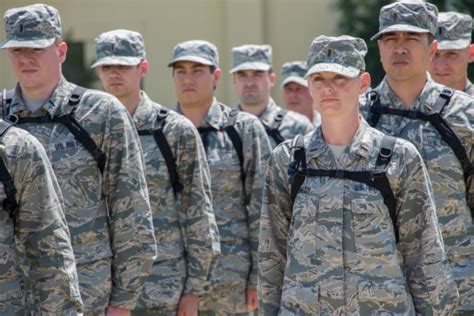Introduction

Becoming an Air Force officer is a prestigious honor and a rewarding career path. The Air Force is one of the most selective military branches, with a rigorous application process and a highly competitive acceptance rate. This guide will provide you with all the information you need to know about the Air Force officer acceptance rate, from the eligibility requirements to the selection process and the factors that influence your chances of getting selected.
Eligibility Requirements
To be eligible for the Air Force officer program, you must meet the following basic requirements:
- Be a U.S. citizen
- Be between the ages of 18 and 39
- Possess a bachelor’s degree from an accredited institution
- Meet all physical and mental health standards
- Have no criminal convictions or civil judgments
Acceptance Rate
The Air Force officer acceptance rate varies depending on the specific program and the year, but it is typically around 10-15%. This means that for every 100 applicants, only 10-15 will be accepted.
Selection Process
The Air Force officer selection process is highly competitive and involves multiple steps:
- Application: Submit an application through the Air Force Officer Training School (OTS) website.
- Pre-screening: Your application will be screened for eligibility and completeness.
- Medical Screening: You will undergo a physical and mental health examination.
- Interview: You will be interviewed by a board of Air Force officers.
- Selection: The board will make a decision on your application based on your qualifications, interview, and overall suitability for the Air Force.
Factors that Influence Acceptance
Several factors can influence your chances of getting selected for the Air Force officer program:
- Academic Achievement: A strong academic record with a high GPA and challenging coursework will make you a more competitive candidate.
- Leadership and Extracurricular Activities: Demonstrating leadership qualities and involvement in extracurricular activities shows your ability to succeed in a military environment.
- Physical Fitness: Passing the Air Force fitness standards is essential for selection.
- Interview Performance: Preparing thoroughly for the interview and making a positive impression on the board can significantly improve your chances.
- Branch Preference: Some Air Force branches may have lower acceptance rates than others due to their high demand or smaller size.
Strategies for Increasing Your Chances
To increase your chances of getting selected for the Air Force officer program, you can employ the following strategies:
- Start early: The application process can be lengthy, so start preparing early to give yourself ample time.
- Build a strong academic foundation: Focus on achieving a high GPA and taking challenging coursework, especially in STEM fields.
- Develop leadership skills: Seek opportunities to lead and participate in extracurricular activities that showcase your abilities.
- Stay physically fit: Maintain a healthy lifestyle and train regularly to meet the Air Force fitness standards.
- Prepare for the interview: Practice your interview skills, research the Air Force, and be prepared to answer questions about your motivation, leadership, and suitability for the military.
- Research the branches: Learn about the different Air Force branches and determine which ones align with your career goals and interests.
Common Mistakes to Avoid
To avoid common mistakes that can hurt your chances of acceptance, keep the following in mind:
- Incomplete or inaccurate application: Ensure your application is complete, accurate, and free of errors.
- Poor physical fitness: Failing to meet the Air Force fitness standards is an automatic disqualification.
- Negative or evasive answers in the interview: Be honest and forthright in your answers during the interview.
- Lack of preparation: Not preparing adequately for the interview or the overall application process can diminish your chances.
- Over-reliance on one branch: Applying to only one Air Force branch can limit your options if you are not selected.
Pros and Cons of Becoming an Air Force Officer
Pros:
- Prestigious career in the United States Air Force
- Leadership and management opportunities
- Travel and adventure
- Camaraderie and teamwork
- Competitive salary and benefits
Cons:
- Long and challenging training period
- Deployment and relocation requirements
- Potential exposure to danger
- Limited civilian job opportunities after military service
- Bureaucratic and hierarchical structure
Conclusion
Becoming an Air Force officer is a highly rewarding and challenging career path. The acceptance rate is competitive, but with careful preparation and a strong application, you can significantly increase your chances of getting selected. By following the strategies outlined in this guide, avoiding common mistakes, and weighing the pros and cons, you can position yourself for success in the Air Force officer selection process.
Additional Resources
- Air Force Officer Training School
- Air Force Medical Service
- Air Force Cyber Command
- Air Force Space Command
- Air Force Reserve
